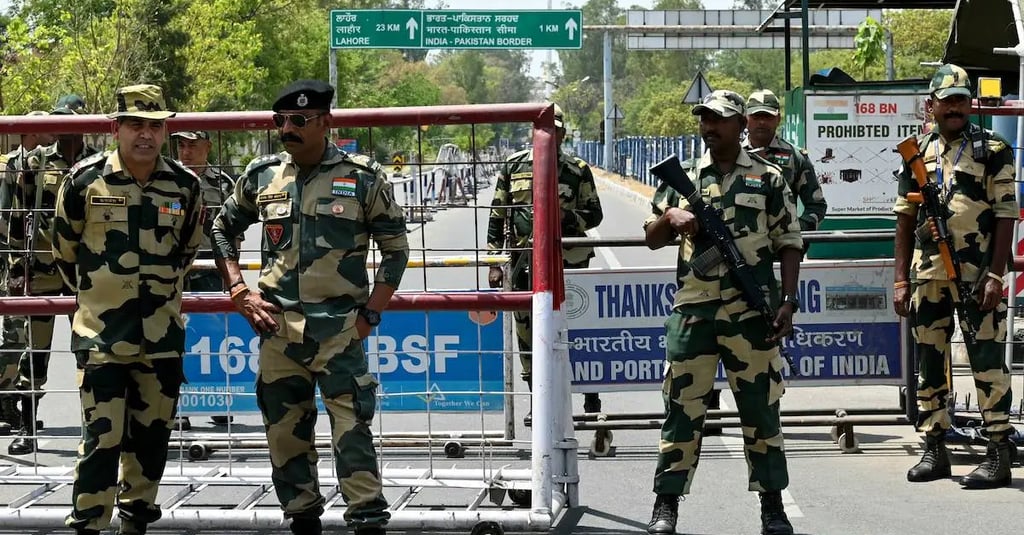India Bans Pakistan Imports Amid Escalating Tensions Over Kashmir Attack
Following a deadly attack on tourists in Kashmir, India has imposed an immediate ban on all imports from Pakistan, intensifying hostilities between the nuclear-armed neighbors. Diplomatic and military actions have heightened fears of further conflict in the disputed region.
WORLDPOLITICS
Reuters, AFP, AP
5/3/20252 min read


India Bans Pakistan Imports Amid Escalating Tensions Over Kashmir Attack
Immediate Ban on Pakistani Imports
India announced on Saturday that it has banned the import and transit of all goods originating from or exported via Pakistan. The decision, which takes effect immediately, was issued by the Directorate General of Foreign Trade under India’s Commerce Ministry. The move comes amid deteriorating relations following a terrorist attack that killed 26 tourists in the disputed Kashmir region.
A statement from the Commerce Ministry read:
“Direct or indirect import or transit of all goods originating in or exported from Pakistan, whether or not freely importable or otherwise permitted, shall be prohibited with immediate effect, until further orders.”
The ban is being enforced “in the interest of national security and public policy.”
Military Activities Intensify on Both Sides
Simultaneously, Pakistan’s military announced it had conducted a successful training launch of the Abdali Weapon System, a surface-to-surface missile with a range of 450 kilometers. According to the Pakistani military, the exercise aimed to ensure the operational readiness of troops and to validate key technical parameters such as the missile’s advanced navigation and enhanced maneuverability.
Meanwhile, Indian defense sources reported nine consecutive nights of gunfire exchanges along the Line of Control (LoC), the heavily militarized de facto border between the two countries.
Rising Diplomatic and Military Hostility
The situation escalated significantly after the Kashmir attack in Pahalgam. India has directly blamed Pakistan for supporting the attackers, a charge Islamabad has denied. In retaliation, India has taken several bold steps:
The closure of the Wagah-Attari border, the only trade route between the two countries.
Suspension of the Indus Water Treaty, a long-standing agreement governing shared river resources.
Granting “full operational freedom” to the Indian military by Prime Minister Narendra Modi.
In response, Pakistan has also taken strong diplomatic measures:
Halting all trade across the border.
Closing its airspace to Indian flights.
Expelling Indian diplomats from Islamabad.
Issuing a stern warning that the suspension of the Indus Water Treaty would be seen as an act of war.
Kashmir on Edge
The disputed region of Kashmir remains tense and fearful. As both countries increase their military posturing, residents of the region worry that an all-out conflict may be imminent. The fact that both India and Pakistan possess nuclear capabilities adds a grave dimension to the current standoff.
Conclusion
With both sides taking aggressive diplomatic, economic, and military steps, the India-Pakistan conflict appears to be entering a more dangerous phase. The fallout from the Kashmir attack has not only crippled bilateral trade but has also brought the region perilously close to military escalation. All eyes now turn to international stakeholders who may need to intervene to prevent a further slide into open conflict.
Photo: AFP via Getty Images
PODCAST
MORE NEWS
© 2026. Ke Press Global. A Ke Harbor Company. All rights reserved.
FOLLOW KE PRESS GLOBAL ON :
Contact us




